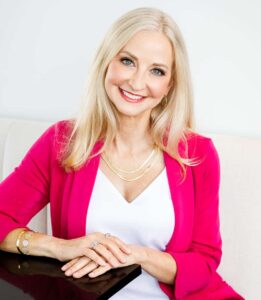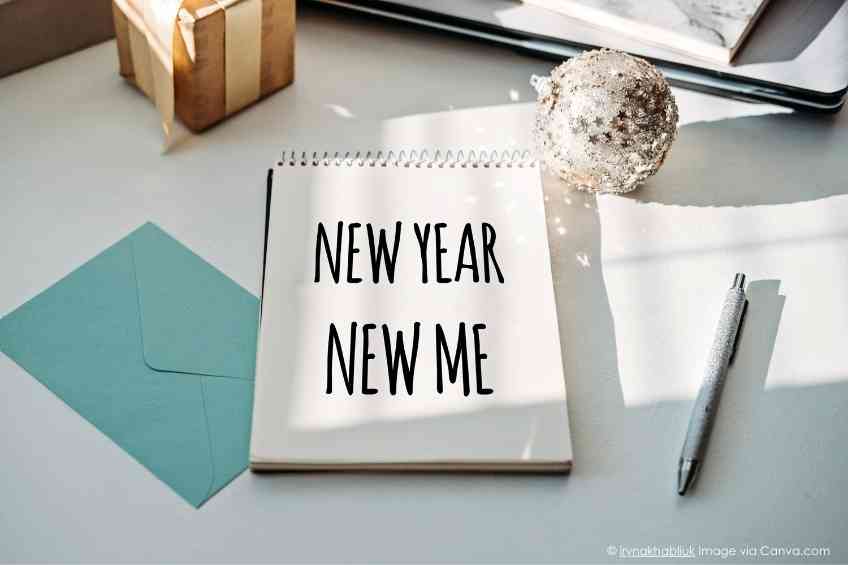Happy New Year. Guess what? It’s time for a New Year’s resolution. Americans especially love them. A startling two-thirds of U.S. adults feel pressured to make a resolution and almost 40 percent actually set a goal in line with the new year. Slightly more women than men make them and about 80 percent of those making a goal believe they have the willpower to achieve them. Obviously, the percentage of resolution makers who don’t hit their perceived finished line is pretty high. In fact, it’s estimated that less than 10 percent are still on target a month into their resolution. Forbes.com reports that improved fitness, stronger finances, better mental health, losing weight and eating more nutritiously top the list of goals. Hope, obviously, springs eternal. But are these resolutions a good thing? If they are, why do so many people fail to stay with them and what can be done to improve the success rates? Angie Miller, a certified wellness coach and mental health therapist, spoke recently with WellWell to lay out why so many are focused on setting New Year’s goals and how to make them work for people instead of against them.
Angie Miller, M.S., LCMHC, CWC, RYT® 200, is a Global Wellness Specialist who champions the intersection between physical, mental and emotional well-being. As a Licensed Clinical Mental Health Therapist, Certified Wellness Coach, International Speaker, Author, and Renowned Fitness Expert, Angie blends her expertise to empower individuals and audiences worldwide, giving them mental and physical strategies for success.
Why do so many people create New Year’s resolutions? What’s the motivation?
I work as a mental health therapist, a wellness coach and in fitness. I’ve worked with clients as a trainer and corrective exercise specialist for decades, and so I get to see people in a training environment, in a coaching environment and a mental health environment. When you boil it down, we’re all kind of the same. I think it’s the general nature of human beings that we want to look ahead. We are very hopeful as humans. We always look to the new year to feel better and it’s an optimal time because we mark off that last day of the old year and we jump into a new year. It’s a clean calendar. Nothing’s happened, so anything is possible. I think that for me and so many of us, we see it as a fresh start like a new beginning. It’s another chance to become what we ultimately think that we want to become, whatever that is, whether it’s healthier, more fit or more active, more energetic or more positive.
Is there a high failure with resolutions?
I think that we have to redefine failure. That’s a mindset thing. It’s not a failure if you try. But I think as a general rule, people set too high of expectations. So, they might set five or six resolutions and they want to almost reinvent their life. But if you really think about it, we go from December 31st to January 1st, your life isn’t going to change overnight because it’s a new year. Yes, there’s possibility and hope, but we have to be very strategic. Everyone needs adequate support. So, whatever that looks like? If it is that you want to feel better or you want to improve your mental well-being. Maybe you need a good therapy. If you want to work on life goals or career goals, maybe you need a coach. If you want to lose weight or reshape your body, maybe you need a personal trainer. Maybe you just need mentors or family or friends.
But I think first and foremost, we need a plan and a support system. Number two, we need a strategy, so we don’t fail. It’s not that we’re not able to do what we set our mind to. I think it’s that we go into it without a plan. We say we want this and we think we want it, but I think first we have to make sure we can achieve this goal. Do I have the support I need and do we need to take everything in increments? You need to take it one step at a time and stand on this step for a minute after you’ve achieved an increment and look back and say, wow, look what I just did, and then go to the next step and look back and say, wow, look what I just did. Appreciate the steps and the moments along the way because this is a long way up and if we get there too fast we may not stick to it.
We seem to live in a society where marketing and a number of other things entice people to create unrealistic goals. Is this something people fall prey to? How do people avoid this?
I used to teach university students and tell them, let’s say you start dating somebody, and all of a sudden you know that person is a real big avid exerciser. So, you start exercising and then you stop dating that person. The next thing you know, you’re not exercising. It’s kind of the same thing with ads. It has to be important to you. It has to align with your value system. If you tell me I want to start exercising again, I want to know your history of exercise. But I also want to know why it’s important to you now. I also want to ask you, if you were to start exercising, how would your life look different a year from now? How would your life look different six years from now? In other words, I want you to think long-term. How is this going to impact your life and truly make a lasting difference? We’re an immediate gratification society. But, for example, we’re not necessarily surrounded by foods that support our goals. There are a lot of fast-packaged processed foods. Those types of foods don’t support your goal to be healthier, feel better and have more energy. And so, we really have to think about it when we see an ad on TV. If it sounds too good to be true. I’m here to say it is too good to be true. We have to be very guided and intentional. If it’s a quick fix, it’s probably not a lasting fix.
Does achieving goals mean you have to free yourself of the baggage or things that may have interfered with what you wanted to achieve previously?
It’s important for a couple of reasons. If we carry over stuff, we’re carrying around baggage. I was explaining it to people like your backpack. You’re carrying a backpack and it’s just full of your stuff, like your relationship baggage, your job baggage, your family baggage. At some point in your life, you just keep filling that bag and not dealing with the stuff that you need to deal with, eventually, you’re going to launch it onto the wrong person. You’re going to get into a relationship and they’re going to say something and it’s going to trigger something in you and the next thing you know, the backpack is out, and stuff is filling in. Ultimately, you’re bringing a lot of that stuff into your current situation. We have to find a way to make peace with our past. We have to find a way to say, OK, that happened. Now what? And whether it’s a family issue or whether it’s goals that didn’t work in the past. Because if we keep carrying that with us, it’s almost like we’re going to position ourselves as a victim. It can mean taking on a position like: it’s never worked for me before, so why should I try? It’s kind of an I give up, victim mentality. We really have to get clear in terms of health and wellness. That’s why I want to know what’s your history and what got in your way.
It’s almost impossible to get rid of all our baggage. Is the key being aware of what baggage you’re carrying or is it something beyond that?
I think we have to be aware of what’s getting in the way. Otherwise, we’re going to project it onto everyone and everything. Sometimes that means that we have to get help to become aware. Sometimes we’re not even certain of that. A lot of times it’s not even the thing we think it is. Like, you have a bad day at work. It must be my job that’s making me miserable. And so, then they quit their job and they go get a new job. And now they’re still miserable. OK, if it’s not my job, then it must be my partner. I’m going to get rid of my partner. And so, we just keep going through things and keep meeting ourselves where we’re at. I think awareness is key and sometimes we need help to get to the bottom of exactly what is getting in the way. But I definitely think that our past does not define us. It’s the decisions that we make about what happens to us that matter. So, if we’re going to set these goals and intentions for the new year, we have to let what happened in the past go and make peace with it.
The new year is an obvious time to build awareness, set goals and create plans to achieve them. It’s a new chapter. but can’t you apply this at any time? You don’t need New Year’s to necessarily trigger it, do you?
I think so. I just set a goal recently. I’ve always wanted to take piano and one day I was teaching a fitness class and the gal said, “I teach piano” and I jumped on it. It was the right moment. And one thing led to another and I’m taking piano lessons. I’ve always wanted to play golf. I started taking golf, but with both of those, I hired an expert to help me. I hired a piano teacher to help me. I hired a golf coach to help me learn how to play golf. I know that I need the resources and I need the accountability. And so, for many people, if health or fitness is their goal, getting a trainer of all else is about accountability and education because if you get the right trainer, they can educate you in a way that gives you full autonomy so that you can go out on your own. What I always say to people is hire somebody who builds your self-belief so that ultimately you can and will do this on your own.
Can you define how accountability plays into this? Is it someone holding a sheet and saying, oh, you only did 12 crunches, you’re supposed to do 15? Or is it a deeper meaning of accountability within whatever your goal may be?
I am overwhelmingly committed to personal accountability. I think we are a society that has lost the notion of accountability. And I never allow myself to say sorry I’m late, the traffic was bad. I just say I’m late. No excuses. I don’t allow myself an out. I don’t give myself a back door. And I find that will lead somebody into victimhood more than anything. Let’s say that you know something happened and I had my car into the shop and they were 30 minutes late. I’m not going to probably get into the big story. I might if I find that somebody really would appreciate an explanation, but at the end of the day I’m late and that’s all that matters. We have to have this notion that while support is amazing, we really have to stand on our own 2 feet. We have to have the belief that we can and that’s what I think a good coach will do. That’s what I do as a wellness coach, I build your self-belief and personal autonomy. You have to have a sense of that. You can accomplish what you put your mind to. It’s self-efficacy. Self-efficacy says that I believe that whatever I put my mind to, I can accomplish. Efficacy is reminding yourself of times when you did succeed and knowing that if you could do it then, you can do it now.
And it’s accountability to yourself. you’re taking responsibility for your actions and whether you achieve them or not, whether you need support. Is that a fair assessment?
I think so. I think that’s perfect and I think that if we have self-belief, we can do anything. Are we going to be great at it? Am I ever going to be a good golfer? I don’t think so. But guess what? I’m going to keep my brain and my body active in a different way, and I’m going to accept that challenge with all I’ve got because I don’t need to be good at everything I do. I just need to put myself in situations where I’m in a learning mode so that I can continue to grow. Let’s just consider this possibility. We don’t have to be good. We just have to show up and define good.
What did you learn for yourself in saying, OK, I’m finally going to take up golf or I’m going to finally take up piano lessons? Did you learn something about self-awareness?
I’m learning to be OK with not being good and to redefine good. So, I joke because I show up at the piano and there’s these little itty-bitty kids who go in there and I stick around and listen for a minute, and I go, “oh, ouchy.” And there’s me: peck, peck, peck. And then there’s them sounding like Beethoven. I have to remind myself that I am a woman of a certain age and my learning curve is going to be different and look different. I may not pick up on things as quickly, but that’s why it’s even more important that I do it. I’ve learned to be OK with not pushing myself all the time, just accepting that learning, in and of itself, is good.
What would you want people to take away from this?
I think one thing we all have to remember is that the higher the challenge, the greater the need for support like major life-changing events, losses and breakups. If you’ve tried many, many, many times to take up exercise and it has not worked, that’s a high challenge for you. Get support. And the second thing is I believe that we can do anything with the right mindset and the right level of support. I believe that human potential is endless. The only time that it’s limited is when we get in our way. When we tell ourselves stories that just no longer serve us.

About Angie Miller
Angie Miller, M.S., LCMHC, CWC, RYT® 200, is a Global Wellness Specialist who champions the intersection between physical, mental, and emotional well-being. As a licensed clinical mental health therapist, certified wellness coach, international speaker, author and renowned fitness expert, Ms. Miller works to empower individuals by giving them mental and physical strategies for success.
Please visit angiemillerfitness.com to learn more.













